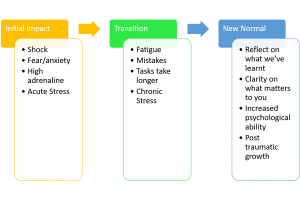Connect with us on LinkedIn for updates and the latest industry news
Anybody feeling a bit out of sorts and fatigued this week? A bit low and feeling like you’ve lost motivation to embrace the home schooling and virtual quizzes that have personified your adaptable approach to Lockdown over the last 74 days?
 It feels like there’s been a bit of shift, certainly in the conversations that I’ve had this week, with the realisation that ‘long haul’ is not a flight choice for our summer holidays in 2020, but more an approach we are collectively bound together in against a virus.
It feels like there’s been a bit of shift, certainly in the conversations that I’ve had this week, with the realisation that ‘long haul’ is not a flight choice for our summer holidays in 2020, but more an approach we are collectively bound together in against a virus.
A couple of weeks ago I listened to a podcast by Dr Rob Archer (‘Leading through a crisis’, PWC) in which he described the impact of the ‘Covid timeline’ in three phases (with apologies for paraphasing, but here’s my take from the notes I took)

What struck me this week is the connection between the words I am hearing in conversations ‘I’m exhausted’, ‘I just can’t seem to get anything done’, ‘I feel a bit emotional’ and the second phase of the timeline – Transition
Recognising the impact of being in transition is important for leaders, not just for ourselves and our own wellbeing, but also for the teams we are leading. Leaders who know their team well will know the tell tale signs of whether their team members are coping, or are experiencing the emotional and psychological challenges of ‘transition’. We need to recognise that resilience stores are coming under pressure, and that the responses may differ for each team member – as Patrick blogged last week ‘we may all be in the same storm, but we’re not in the same boat.’
Transition, in the business as usual context, often has an exciting, stated destination… one we can visualise and narrate, to excite and orient ourselves towards. (Think about Dannemillar’s Change Formula, and how key vision of a positive future state is in achieving sustainable change)
But the challenge right now may be the lack of clarity of that vision.. what are we transitioning towards? As leaders, we can’t give clarity when we don’t have it, we can’t make false promises and confident assertions that are only grounded in well intended positivity.
So what we can do as a leader? Dr Rob Archer suggested 3 H’s that need to define a leader’s response and responsibilities in the Transition phase
- Honesty – about where we are, what’s working, what I do or don’t know
- Humanity – consciously making time to explore for themselves and for others ‘what do I need today?’
- Hope – orient towards a sense of possibility
‘Orient towards a sense of possibility’.. that’s a positive frame that can be a unlock to exploring a ‘new normal’. It’s not about committing a defined plan, or making unsubstantiated commitments and promises. It is about looking for potential that arises from any situation. It’s about innovating, being creative, and looking beyond today.
Helping team members to recognise that their current emotions while valid are likely impermanent, as ‘transition’ is by it’s very nature, and to instead engage with contemplating the ‘post traumatic growth’ opportunities seems like an invaluable activity for leaders right now.




